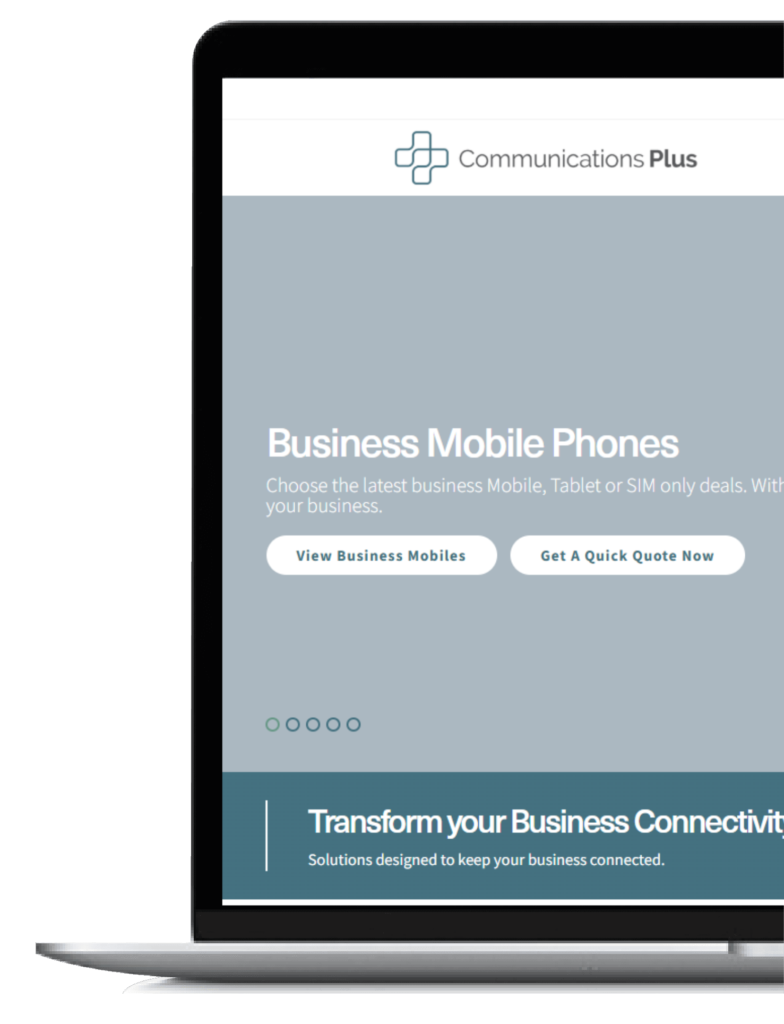Having a business mobile phone is like carrying around a laptop in your pocket.
They’re so much more than something to just make calls or send emails on.
Today you can download and work on documents directly on your touchscreen, host conference calls over video with people all over the world, manage presentations, download and submit receipts for your accounting, pay invoices, chase invoices you’re waiting on.
Basically you can now run your entire business on a smartphone.
But like all technology, your business phone might start to slow down over time.
It’ll become less efficient.
Take longer to charge and last less time between charges.
We’ve all experienced it with our personal smartphones.
They were great when we got them.
Then they stopped supporting the latest operating system upgrades.
Apps stopped working or crashed as our phone got left behind by newer models.
And we were lucky if the phone lasted until lunch, even though we’d had it on charge all night.
For an individual it’s annoying.
But for a business, it can cripple productivity and stop you working as well as you should.
If you’ve had the same business phones for a while now, it could be time to see if they’re still working as well as they used to.
If you’re seeing any of these signs, then it’s definitely time to upgrade your business phones.
1. You can no longer download the latest operating system
Smartphone operating systems are constantly evolving and improving.
Bugs are fixed, new features added and security upgraded to meet the challenges of threats.
Having the latest operating system can also determine which business apps you can download and use, as some are discontinued on older operating systems.
Eventually, your phone will no longer be able to upgrade to the latest operating system because the older hardware and software won’t support the changes.
When this happens the performance of your phone could start to deteriorate, and the apps you’ve been using could eventually stop being compatible.
This also means your phone won’t have the latest security features.
Once your business phone no longer supports the latest operating system, it’s definitely time to consider an upgrade.
2. The battery is running down too quickly
Smartphone batteries naturally deteriorate over time.
Even with minimal usage the battery capacity will eventually run down.
But when you’re running a business on your phone, this process can happen even faster as you’ll likely have to charge the phone more regularly, and are putting the battery under more strain with heavy usage.
There are things you can do to minimise the battery deterioration through battery management and changing how and when you charge your phone.
However it’s inevitable that you’ll end up with a phone that lasts a couple of hours before you need to charge it again.
If you’re finding yourself regularly looking for a plug or charging point before your phone runs out, it’s probably worth considering an upgrade.
3. You can’t support the latest enterprise apps
Whatever business applications and software you use you’ll have to continually update and upgrade it to get the latest features and security benefits.
Over time though, these applications will be discontinued on older operating systems when it becomes unviable to keep creating them to work over multiple platforms.
Think about it, why would you continue to create a business app that’s compatible with operating system 1.0 when 98% of users have moved on to 2.0?
If you start to find your phone isn’t compatible with the business and enterprise apps you want to use, then you should think about a business phone upgrade.
4. The device crashes more regularly
As phones age and applications become more outdated, the chances of your phone crashing or forcing restarts grows.
This is because the phone’s software and hardware can no longer withstand the processing power it takes to make apps work, and crashes trying to connect.
This doesn’t happen every time, and you might go a few months in between your phone crashing.
But when you’re in the middle of an important video call or piece of work, having your phone crash could be more costly than the price of an upgrade.
5. You experience more connectivity issues
Mobile and wireless connectivity is always evolving and improving.
We’ve had 3G and 4G.
And 5G is the next connectivity level that will transform business comms by providing faster, more reliable connections.
But older phones aren’t compatible with these newer connections.
While most new phones are 4G compatible, only the very latest business phones are now built with 5G compatibility.
If you’re hanging onto your older business phone, you might start to experience more common connectivity problems.
This is because less work is done maintaining older connections as more work goes into developing and improving new mobile connections.
If your business phone isn’t compatible with 4G or 5G then you’ll eventually start to struggle to keep up with the demands of running a business on your phone.
6. Your phone goes through general wear and tear
It’s a simple fact that business mobile phones, and any technology, will suffer from general usage.
It’ll get dropped. Drinks spilled on it. It’ll get scratched and generally banged around as it sits in your pocket or bag.
While phones are built to withstand this day to day usage, there will come a time when the hardware and software simply can’t keep up and the phone will become less usable.
You can obviously limit this by protecting the phone in a case, using a screen protector and being careful – but accidents happen.
You can also refurbish your phone by having new screens and cases put on (just be careful how this could affect any warranty you’ve got).
But in the end there’ll be a time when your phone has simply had enough.
If your business phone is starting to look a bit beaten up, run down and isn’t working to the same level it used to, then you should upgrade your phone to a newer model.
Plus, newer models are built with better materials so will last even longer.
Choosing the right time for a business phone upgrade
It’s hard to define the ‘right time’ you should upgrade your business phone because how long it lasts is dependent on a number of individual factors like how you use the phone, how protected it is and what model it is.
But what we’d recommend is that you don’t wait until the last minute before you start looking to upgrade your phone.
Ideally you should run a review of your business’ technology and devices periodically – perhaps a couple of times a year – to get a better understanding how everything is working and what new problems might be emerging.
Once you start to identify problems with your devices then you should start looking at whether an upgrade is the best solution.
If you’re ready to upgrade your business mobile phones or are wondering if you can get a better deal than your current plan, get in touch with us by clicking here.










